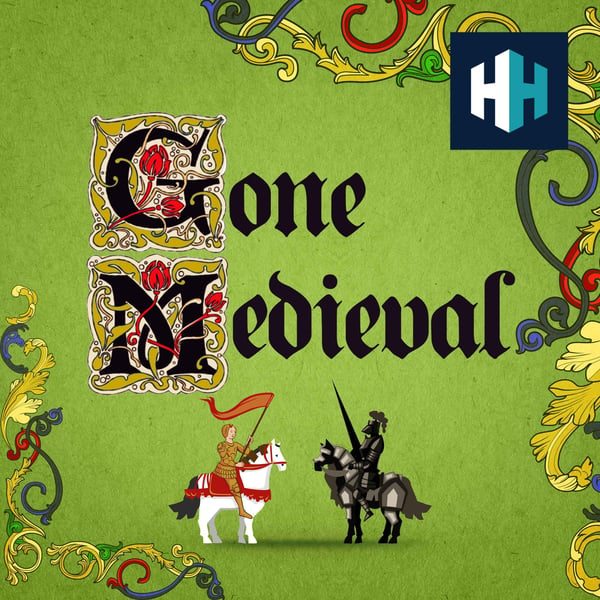Real Medieval Women with Philippa Gregory
Gone Medieval
History Hit
4.6 • 2.2K Ratings
🗓️ 12 March 2024
⏱️ 42 minutes
🧾️ Download transcript
Summary
When we think about women in the Middle Ages, we know about Eleanor of Aquitaine or Hildegard of Bingen, but we are a lot less likely to think about the alewives plying their trade in cities, or the noble ladies quietly running their estates, or even the nuns falling in love with each other and praising God.
In this episode of Gone Medieval, Dr. Eleanor Jannega is joined by the best-selling novelist and historian Philippa Gregory, whose new book, Normal Women: 900 Years of Making History, sets the record straight.
This episode with edited by Ella Blaxill and produced by Rob Weinberg.
**WARNING: This episode contains some explicit sexual discussion**
Enjoy unlimited access to award-winning original documentaries that are released weekly and AD-FREE podcasts. Get a subscription for £1 per month for 3 months with code MEDIEVAL - sign up here.
You can take part in our listener survey here.
Transcript
Click on a timestamp to play from that location
| 0:00.0 | When the average person thinks about the medieval period, the first thing that springs to mind isn't necessarily the women who inhabited it. |
| 0:11.0 | I can largely forgive that tendency because the people who wrote the |
| 0:15.5 | medieval works that survived to us were often men as women were very rarely |
| 0:20.3 | taught to read let alone write. So we know the names of great women like |
| 0:24.8 | Eleanor of Aquitaine or Hildegard of Bingen, but we are a lot less likely to think |
| 0:29.3 | about the alewives plying their trade in cities, or the noble ladies quietly running their estates, |
| 0:35.7 | or even the nuns falling in love with each other and praising God inside nunaries. |
| 0:40.1 | I'm Eleanor Yannaga, and today on Gone Medieval from History Hit I am delighted to be talking about one of my favorite subjects, |
| 0:47.0 | Medieval Women, and I'm even more excited to be joined by best-selling historical novelist and historian Philippa Gregory whose new book |
| 0:55.0 | Normal Women 900 Years of Making History does just that. |
| 0:59.0 | Philippa first of all thank you so very much for agreeing to come on the podcast. |
| 1:04.0 | It's a real pleasure. Thank you for inviting me. |
| 1:06.0 | I am absolutely delighted to have you here because you like me share a desire to talk about, well women as you've done so expertly throughout your book. |
| 1:17.0 | Just the title of the book is so bold and I was so excited when it came out because I love |
| 1:20.9 | talking about normal women in the first place. |
| 1:23.0 | That's most of everybody and I think that regular people are who makes history, right? |
| 1:28.0 | Absolutely and I think the way to understand the history of England, it cannot be solely by reading the books that are |
| 1:35.3 | offered us as the history of England that they are almost all drawn from chronicles |
| 1:40.8 | exclusively written by men many of them in monastic life. So not only did they not know |
| 1:47.1 | women very well, they were sworn not to know women very well. So you've got a very, very limited source material and that source material gets |
| 1:56.0 | developed as we all know by subsequent chroniclers and commentators. All the commentators, most of the |
| 2:01.6 | commentators up until the 17th century are male and then all of that gets really developed in the sort of hey day of medieval studies which is the Victorian male historians. Women aren't allowed to attend universities yet and all of the books and all the publishers and all of the editors and all of the historians are men. |
... |
Please login to see the full transcript.
Disclaimer: The podcast and artwork embedded on this page are from History Hit, and are the property of its owner and not affiliated with or endorsed by Tapesearch.
Generated transcripts are the property of History Hit and are distributed freely under the Fair Use doctrine. Transcripts generated by Tapesearch are not guaranteed to be accurate.
Copyright © Tapesearch 2025.

